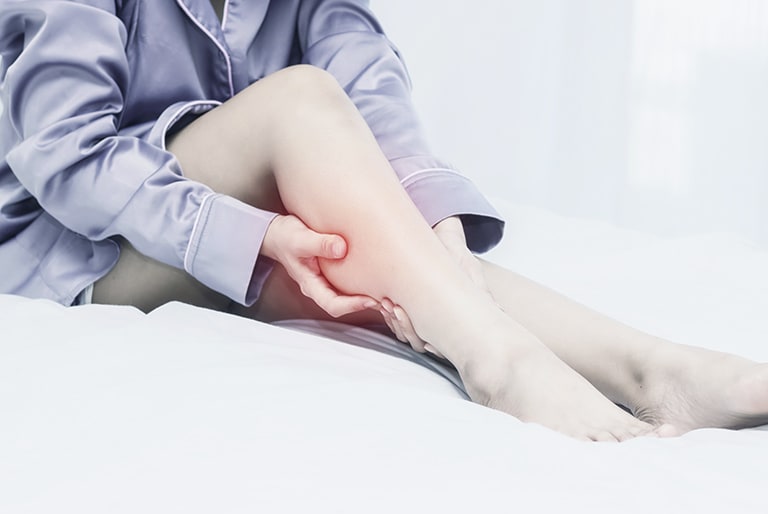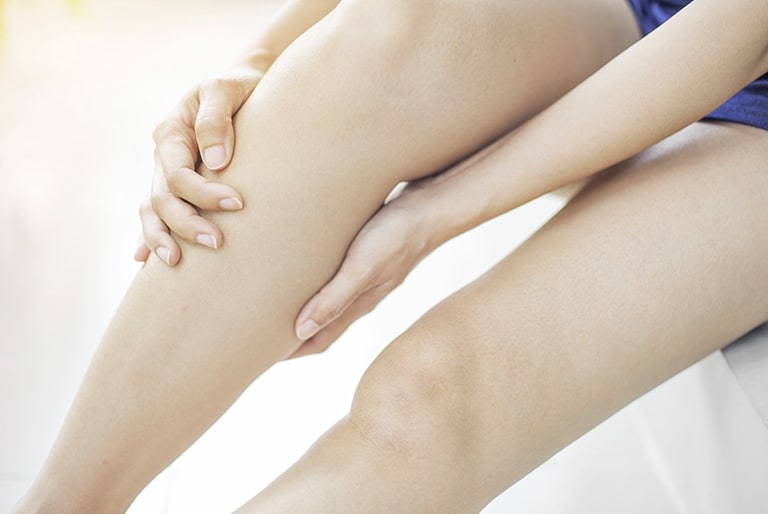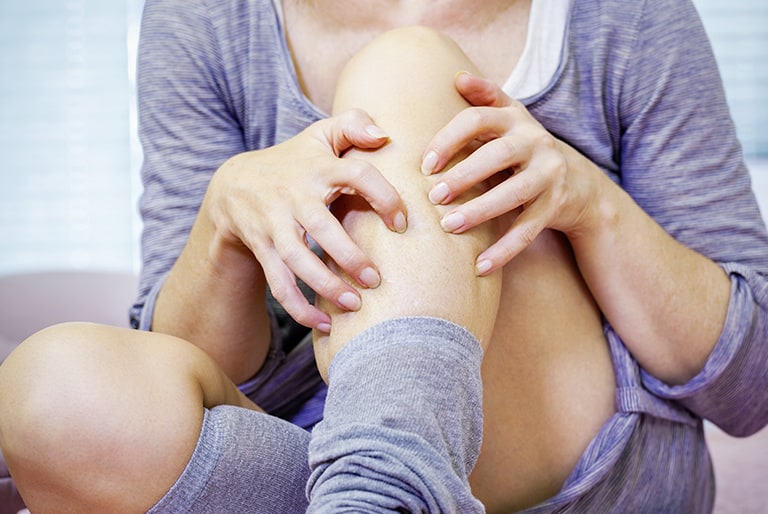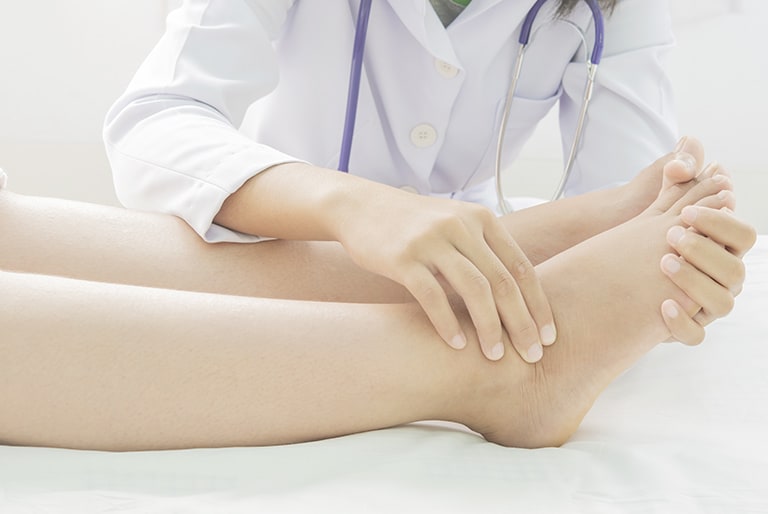
Nightly calf cramps
It happens suddenly whilst you sleep peacefully: Your calf cramps up painfully and pulls you from the land of dreams. Even though the pain is unpleasant, the cramp usually goes again after a short while. But what are the causes behind these nightly calf cramps and what can you do against them?
What is the cause of calf cramps?
The causes of calf cramps are diverse and range from harmless to diseased.
- Predisposition
- Lack of fluids
- Mineral deficiency, e.g. through heavy sweating or after a gastrointestinal infection
- Magnesium deficiency
- Overloading of the calf muscle, e.g from sport or physical exertion
- Underuse of the calf muscle through inactivity and prolonged sitting
- Incorrect loading or positioning of the feet
- Uncomfortable shoes, high heels
- Incorrect sleeping position
- Varicose veins
- Venous insufficiency
- Hormonal changes:
- Pregnancy
- Increasing age
- Circulatory disorders
- Medicines
- Alcohol consumption
- Neuromuscular diseases
- Diabetes mellitus
- Chronic kidney weakness
- Thyroid problems
- Inflammation of the pancreas
Very often nightly calf cramps occur without any recognisable cause. So long as the painful muscle cramp remains as an isolated case or only seldom disturbs your night’s rest, there is no cause for concern. Only if the cramps are regular, and also occur during the day, should you take a closer look. Also, a disease could be the cause if the calf cramp does not relax after stretching.
What does calf cramp feel like?
Anyone who has not yet suffered from calf cramp can be happy. Because cramp can cause hellish pain:
- The muscle contracts and becomes hard.
- The pain gets worse with the slightest movement.
- A calf cramp may only last for a few seconds or last for seemingly endless minutes.
- Once the cramp has subsided the muscles pain remains, which feels like severe muscle soreness after sport, and sometimes it can remain for days.
Why do we get calf cramps at night?
The question has not yet been entirely clarified, but there are various suppositions as to why calf cramps like to appear particularly at night:
- Unfavourable movement in your sleep: sometimes it only needs a bad movement when turning in bed to set off the muscle contraction.
- Indications pass unnoticed: when sleeping you do not notice when a cramp is imminent. If you notice a slight contraction of the calf during the day, you automatically stretch it before the cramp can really kick in. At night time, this intuitive countermeasure is missing and you only wake up when your calf is hurting like hell.
- Falling magnesium level: a further explanation could be that your magnesium level drops at night time and your muscles cramp.
What can I do against severe calf cramps at night?
If the muscle cramps regularly come back, these are possible therapies, depending on the cause:
- Drink a lot, in order to stabilise your fluid balance
- Exercise regularly, do moderate sport
- Stretch your calves before going to bed
- Digest minerals as part of a balanced diet or if necessary by taking supplements, e.g. magnesium or potassium
You should only take magnesium compounds on the advice of your doctor as the wrong dosage can have side effects and interactions with other medicines. If a disease is present, it should always be treated by a doctor. It is only by eliminating the causes that calf cramps will become less frequent.If varicose veins or venous insufficiency are the cause, it can help to encourage the fluidity of your blood, e.g. with Veno SL® 300.
Are nightly calf cramps dangerous?
As a rule, a calf cramp is harmless. But you should watch if other symptoms appear. Warning signs can be:
- Swollen legs or swelling of one leg
- Sudden pain in the legs
- Tingling in the legs
- Back pain:
- Lameness of the leg
- Numbness
Such symptoms should be examined immediately by a doctor.


